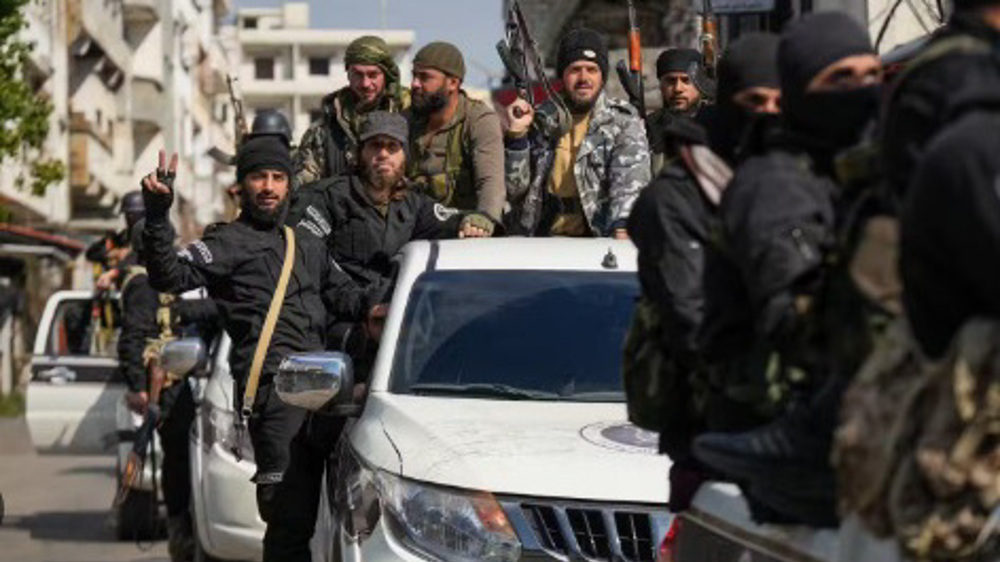The British government has officially removed the Hayat Tahrir al-Sham (HTS) from its list of proscribed terrorist organizations, a move it says is necessary to engage with the regime in Damascus following the fall of the government of Bashar al-Assad.
An order was laid in parliament on Tuesday to de-proscribe the group, which was previously listed as an alias of al-Qaeda.
The UK government stated that the decision enables “closer engagement with the new Syrian government” led by Abu Muhammad al-Jolani, also known as Ahmed al-Sharaa, who is a former al-Qaeda and Daesh commander.
“This supports a range of UK priorities, including counter-terrorism cooperation, migration management, and the elimination of Syria’s remaining chemical weapons,” a government statement read.
The announcement follows former Foreign Secretary David Lammy’s visit to Syria in July, which marked the first high-level diplomatic contact between the two nations in over a decade.
Officials argued that de-proscribing the HTS would “support engagement on the counter-Daesh mission in Syria,” thereby helping to reduce threats to the UK.
“This government will always put the safety and security of the British people first,” the statement said, adding that the UK “reserves the right to reassess proscription decisions in response to any emerging threats.”
The decision comes despite extensive evidence of war crimes and brutal repression under the HTS regime, particularly against minority communities such as the Alawites, who have suffered targeted violence.
According to the monitor, there were 10,955 recorded deaths throughout the country during the reporting period, which included 8,422 civilians, of whom 463 were children and 636 were women, in addition to 3,054 cases of field executions.
Since the HTS forces took over, Syria has seen waves of sectarian and regional violence.
London originally cut diplomatic ties in 2011 following the Syrian government’s efforts to maintain law and order amid terrorist uprisings fueled and armed by Western powers.
The UK also imposed sanctions and took part in military actions targeting Syrian forces.
Since the ouster of President Assad in December 2024 by the foreign-backed offensive led by Jolani, Britain has begun easing sanctions and re-engaging with the Arab country diplomatically.
Yet critics warn that Britain’s re-engagement risks legitimizing a regime with a history of links to the most brutal terrorist groups, such as al-Qaeda and Daesh.
Despite the concerns, Britain has pledged over $129 million in aid to assist the current regime.
Critics of Britain’s policy shift say the pledge ignores the broader context of Western aggression and the role of foreign-backed terrorist groups that wrought devastation across Syria.
Britain’s move follows similar steps by the United States, which is lifting sanctions and preparing to remove Syria and its turncoat leaders from its list of state sponsors of terrorism.



But Palestine Action is still there